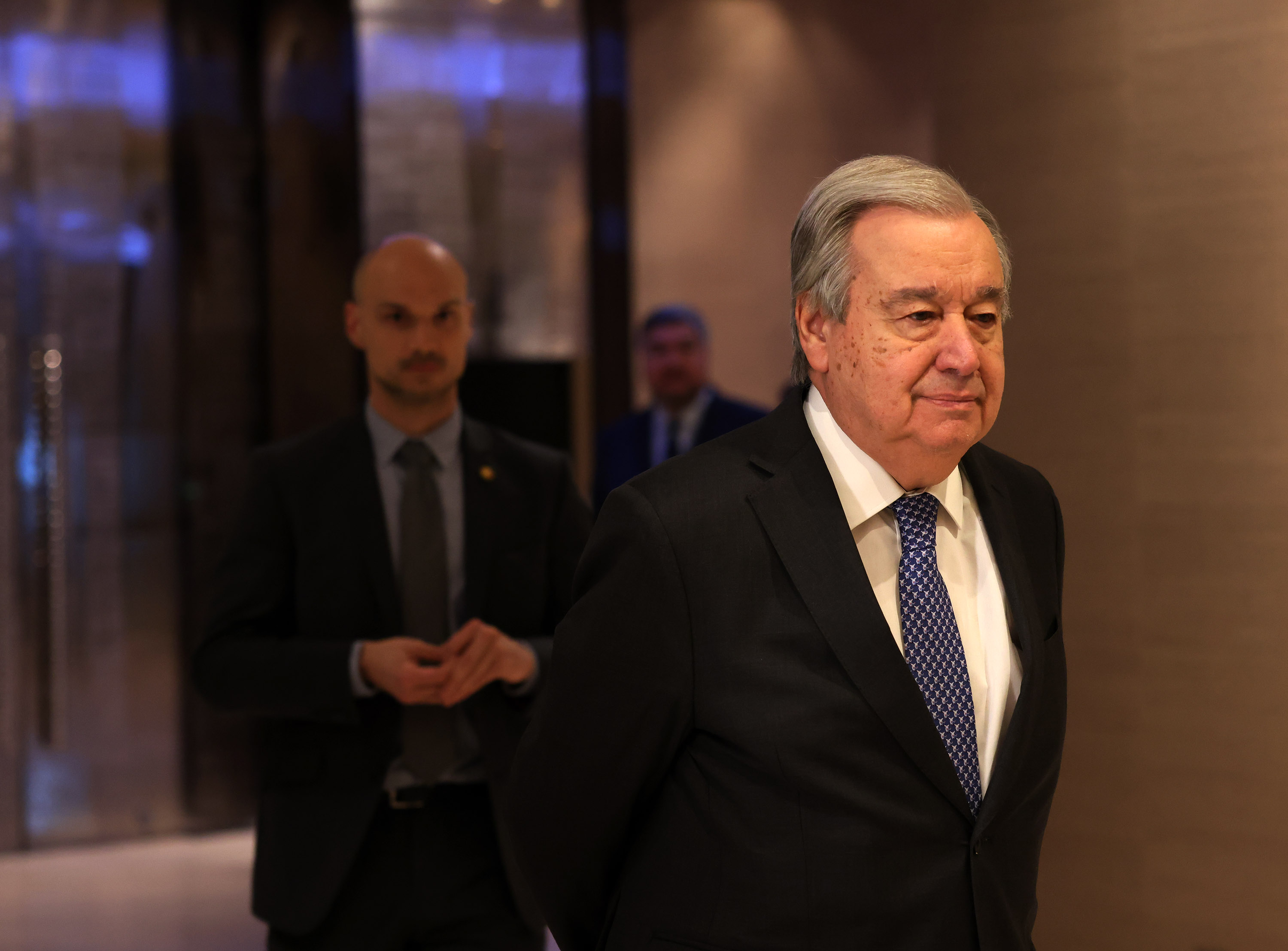The EU will not accept a two-state solution in Cyprus, European Council President Antonio Costa told UN Secretary-General Antonio Guterres during a telephone conversation, about which he then briefed President Nikos Christodoulides.
Sources said Christodoulides held telephone calls with both European Commission President Ursula von der Leyen and Costa, following a meeting of the National Council in Geneva on Monday morning.
Ursula von der Leyen is “very interested” in the outcome of the Geneva informal meeting on Cyprus, the Cyprus News Agency has reported.
Referring to his phone call with Guterres, Costa said he assured that the EU is fully committed to a comprehensive settlement of the problem, in the UN framework for a bizonal, bicommunal federation with political equality, in accordance with UN Security Council resolutions, the principles on which the EU is based and the acquis communautaire.
Turkey must act in line with UN decisions, Costa is said to have told the UN chief.
Costa added that a stable and secure environment in the eastern Mediterranean constituted part of the EU’s strategic interest, as was a stable, independent, peaceful and fully functional Cyprus, as an EU member.
He furthermore said that the EU remains committed to a mutually beneficial relationship with Turkey and that Ankara’s commitment on the Cyprus problem and the Republic of Cyprus constitutes an integral element of EU-Turkey relations, the sources said.
Costa pointed out that the EU must be present and be in a position to offer its support at all stages of the Cyprus process under the UN.
Meanwhile, von der Leyen and Costa sent a joint letter to Guterres, expressing the EU’s desire to be actively engaged in efforts to solve the Cyprus problem, according to government spokesman Konstantinos Letymbiotis.
Speaking after a late-night meeting of the National Council in Geneva and a dinner hosted by Guterres for the heads of delegations taking part in the meeting on Cyprus, Letymbiotis said the dinner had more of a social character during which views were exchanged ahead of Tuesday’s meetings.
Letymbiotis said the letter, sent following an initiative by the Republic of Cyprus, was forwarded to Christodoulides and Turkish Cypriot leader Ersin Tatar.
“This is a move of high importance and value, both as to its timing but also its content and the messages it contains,” Letymbiotis said.
He added that it constituted “a significant EU intervention at a crucial time”.
The letter, he said, was proof of the importance and weight given to the efforts to reach a solution of the Cyprus problem by the two EU officials and by extension by all EU member states.
The EU said it was ready to actively contribute towards the UN process.
According to Letymbiotis, the letter “highlights and underlines the fact that the Cyprus problem as a European problem is of huge importance for the EU.”
Citing sources, CNA said that Giulia Bertezzolo, in charge of the Cyprus settlement support unit at the DG for Regional and Urban Policy will be preparing a report for the EU leader.
Bertezzolo is in Geneva representing the EU on the sidelines of the meeting.
On Monday afternoon Bertezzolo had a meeting with European Affairs Deputy Minister Marilena Raouna.
According to CNA sources, the EU’s intention was for it to be represented at a higher level but the blocs presence could be further enhanced if things progress.
The same sources added that the EU was preparing internally for the possible resumption of Cyprus negotiations, and the units which are responsible for matters to do with Turkey are coordinating in order to send the same messages.
“The EU is here to support, in whatever way it can, by all means and at all stages of the process, as is described in the relevant European Council Conclusions of last April,” the sources said.
Bertezzolo is said to have told Raouna that “you can expect a steady and increasing engagement from us as regards the Cyprus problem.”
For the EU, the same sources said, the agreed basis of the solution is a key element. They added that the bizonal, bicommunal federation was part of the island’s accession treaty. The EU would desire a positive outcome in Geneva so that the process can continue and lead to another meeting, the sources said.







Click here to change your cookie preferences